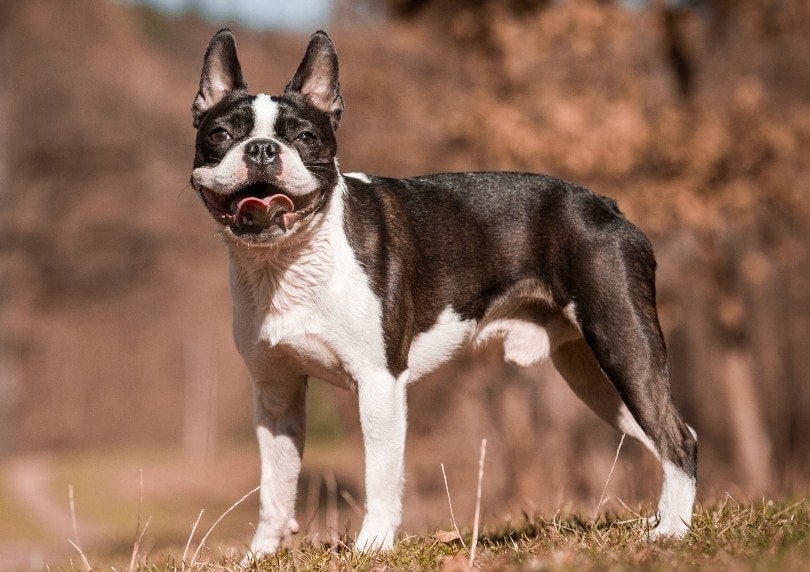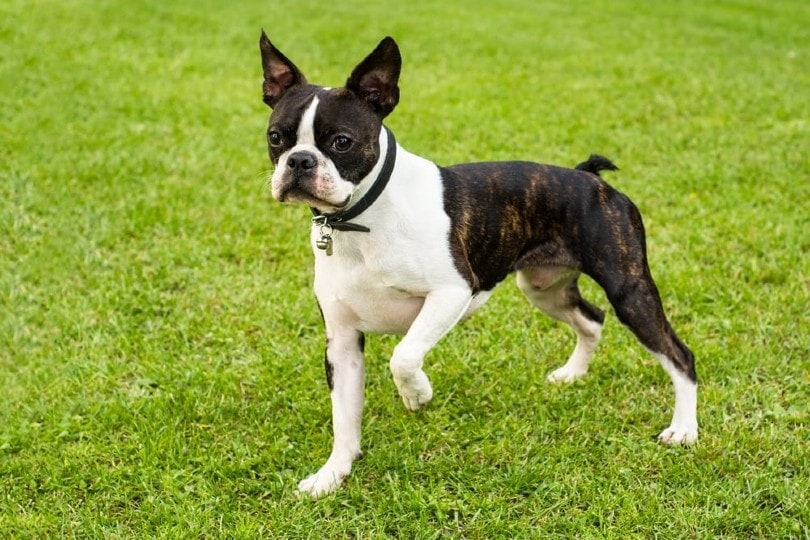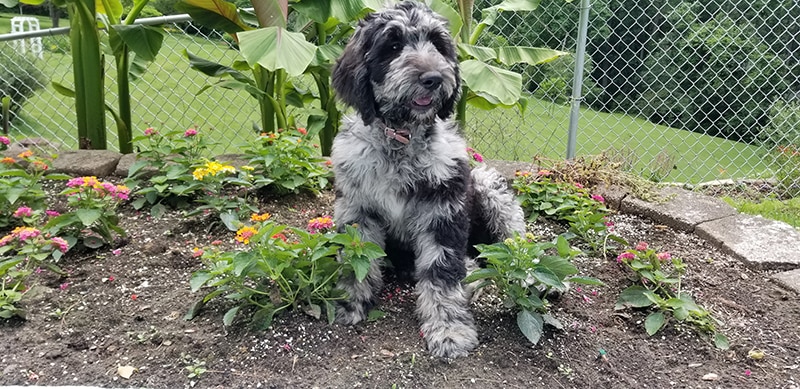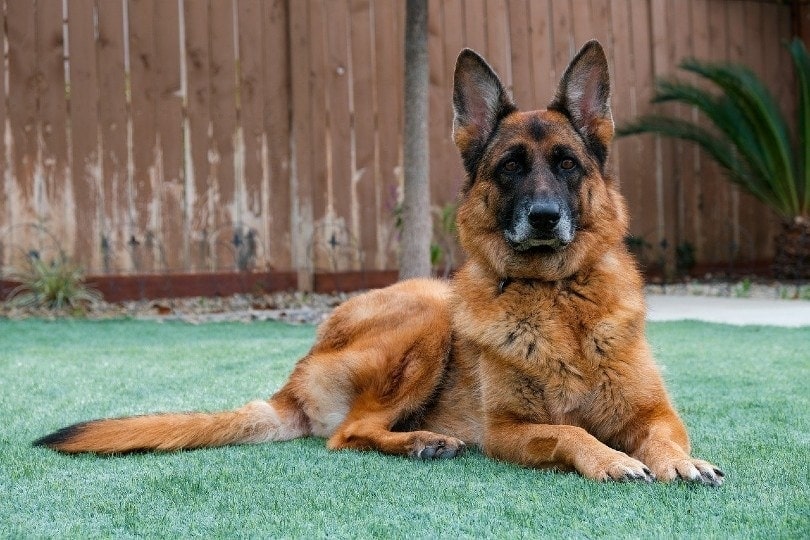Are Boston Terriers Hypoallergenic? Breed Characteristics & Facts

Updated on

Boston Terriers are a popular breed of small to medium-sized dogs. They are known for their intelligence, affectionate nature, and friendly disposition. But one question that many would-be pet owners have is whether or not Boston Terriers are hypoallergenic. A hypoallergenic dog is a type of dog that is less likely to cause allergic reactions in people who are sensitive to dogs due to their non-shedding coats. There is no single dog breed that is 100% hypoallergenic, but there are some breeds that are considered less likely than others to trigger allergies as a result of factors such as their coat types.
Boston Terriers are not hypoallergenic dogs—although some people with allergies may prefer Boston Terriers due to their short, smooth coats. It is, however, still possible (and likely) that dog-sensitive individuals will have allergic reactions to the dead skin cells (known as dander) and other allergens produced by Boston Terriers.
This is why prior to making a commitment to a Boston Terrier as a forever friend, it is essential to spend ample time with the dog in question to see how your allergies respond.
The Difference Between Hypoallergenic and Low-Shedding Dogs
Depending on who you ask, hypoallergenic can mean many different things. Many people out there, especially in the dog-loving world, conflate the word “hypoallergenic” with “low-shedding.” There are two very different meanings for these two terms. When people talk about “hypoallergenic” dog breeds, they usually mean breeds with less hair shedding than other dog breeds. However, the scientific and medical communities are generally in agreement that hypoallergenic means “not allergenic.” In fact, research published in the American Journal of Rhinology and Allergy¹ found that homes with lower-shedding dogs had similar levels of household allergens. The term “hypoallergenic” does not necessarily mean the dog won’t provoke an allergic response.

Dog Allergies: What Causes Them?
Dogs may be man’s best friend, but not everyone can enjoy the company of these beloved pets. Dog allergies are a common concern for many individuals due to their sensitivity to canine dander and saliva. While it is impossible to completely eliminate the risk of developing allergic reactions, there are ways to reduce their severity.
Allergies occur when an individual’s immune system mistakes harmless particles for foreign invaders and attacks them accordingly. In the case of dog allergies, this means that the body mistakes proteins from the fur, saliva, mucus, or urine as threats and releases histamines in response. The amount of allergen present within your home may be impacted by several factors, such as breed type and environment. Long-haired breeds tend to produce and hold onto more dander than short-haired ones, while humid homes create an ideal environment for dust mites which can aggravate existing allergies.
Are Boston Terriers Low-Shedding?
Boston Terriers are short-haired dogs and do shed relatively less hair when compared to some other breeds of dogs. This is because their coats are composed mainly of short hairs that do not grow as long as other breeds. Their smooth coat doesn’t drop hairs as much, so they’re good for people who don’t want a lot of clean-up. As a result, Boston Terrier’s coats stay relatively clean and free from the messiness of excess fur.
Despite this, all dogs shed to some extent, and how much depends on factors like the dog’s age, diet, and overall health. In addition to lower shedding levels, the breed also requires minimal grooming requirements; occasional brushing will help keep your pooch’s coat looking shiny and healthy! Keeping their coat clean and healthy requires only a few brushings a week, and they don’t need frequent baths either.

Allergies and Boston Terriers
Unfortunately, Boston Terriers themselves often suffer from allergies that can cause skin irritation, itchy patches, and watery eyes. These allergies can be caused by anything from food to environmental factors such as pollen or dust mites. It is important for owners to understand the signs of an allergic reaction to provide their Boston terrier with proper care and treatment. Allergic reactions can range from mild to severe, depending on the substance causing the reaction. In some cases, changing your Boston’s diet may be enough to alleviate symptoms, while others may require medications or other treatments recommended by your veterinarian.
Additionally, keeping your home clean and dry will help reduce allergens in the air, which could trigger a reaction in your pet.
Dog Proteins and Allergies
It’s worth bearing in mind that Boston Terriers have commonly been ranked as one of the worst dogs for allergy sufferers—so think long and hard before bringing home a Boston if you are allergic to dogs! Due to their own allergies, Boston Terriers have a tendency for excessive mucus. Dog saliva and mucus can themselves be a trigger for allergic reactions in dog-sensitive people. If a Boston Terrier has allergies, then their excess sneezing, slobbering, and running noses mean that they are spreading far more allergens, whether airborne or on surfaces around the home. Ironically, their flare-ups might end up making you miserable. The proteins Can F1 and Can F2 are the most common allergens found in dog saliva.

Getting a Boston Terrier if You Have Allergies
As you can see, a Boston Terrier may not be right for you if you have allergies, so speak with your allergist or primary care provider before buying one. They can assist you in determining the best course of action and provide guidance on how to manage your allergies.
Some allergy sufferers can live comfortably with Boston terriers if they take certain precautions—such as frequent vacuuming, cleaning their hands after handling the dog, and avoiding certain areas of the house where the dog might be. Air purifiers can also be purchased to remove dog allergens from the room continuously.
When your dog allergy is persistently triggered, you may experience symptoms like sneezing, itchy eyes, and a runny nose on a near-permanent basis. It can be uncomfortable to deal with these symptoms, and they can interfere with your everyday activities. Occasionally, repeatedly triggered and ongoing dog allergies can cause more severe health problems, such as asthma or a life-threatening allergic reaction—anaphylaxis—which is a severe allergic reaction to dogs. Medications or allergy shots may not be enough to manage your allergies in these cases.
Summary
In conclusion, Boston Terriers are not hypoallergenic dogs. While they have low to moderate shedding, they produce a significant amount of dander and saliva, which can be a trigger for people with allergies. It is important to consult with an allergist or your veterinarian before bringing a Boston Terrier into your home if you have allergies or asthma. Additionally, it is important to provide regular grooming and flea treatment to minimize any potential allergen triggers.
Featured Image Credit: Aneta-Jungerova, Shutterstock












